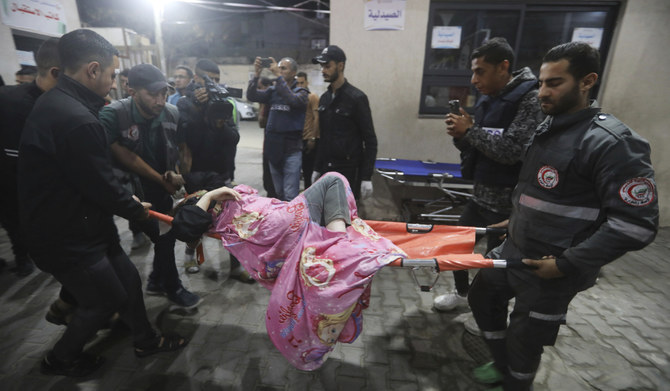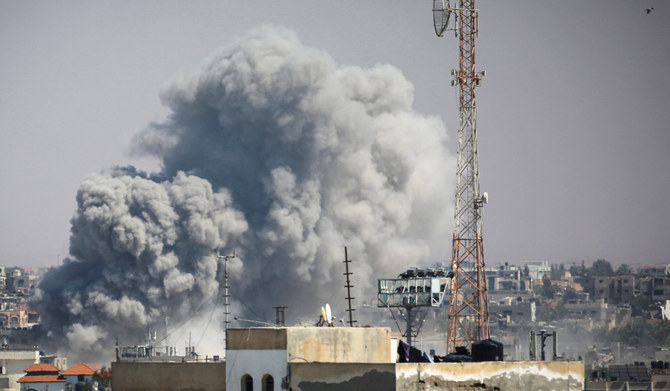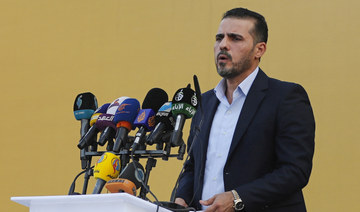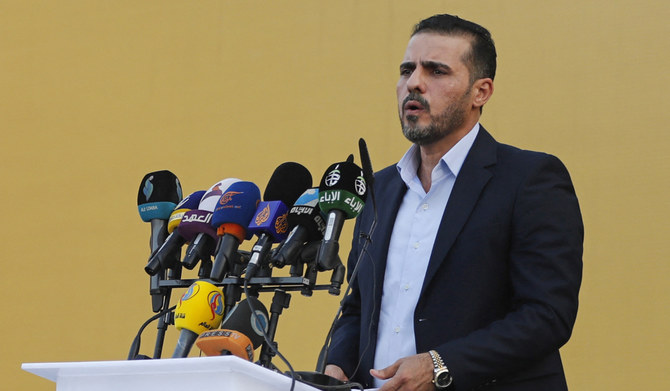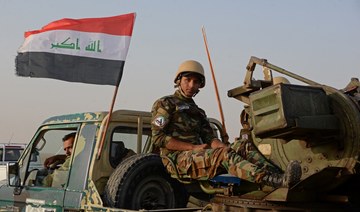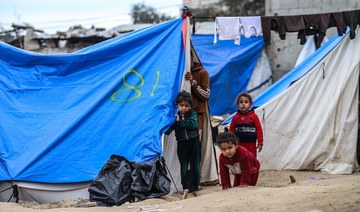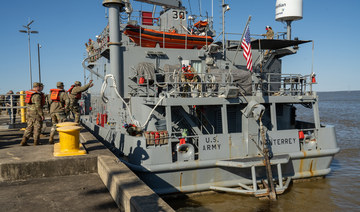JEDDAH/DUBAI: Prime Minister Naftali Bennett said Sunday Israel had “evidence” Iran was behind the deadly tanker attack off Oman despite its denials, and warned his country could “send a message” in retaliation.
Bennett’s statement came after Iran rejected Israel’s “baseless accusations” it was responsible for the attack that killed two crewmen, and Tehran vowed to defend its interests after its arch-foe pushed for UN action against it.
Iranian Foreign Ministry spokesman Saeed Khatibzadeh made comments on the attack from Tehran and denied any involvement, saying Israel “must stop such baseless accusations,” and noting “it is not their first time to direct such accusations at Iran.”
The MT Mercer Street, managed by prominent Israeli billionaire Eyal Ofer, was struck Thursday off the Omani coast.
“The intelligence evidence for this exists and we expect the international community will make it clear to the Iranian regime that they have made a serious mistake,” the Israeli premier said at the weekly cabinet meeting in remarks conveyed by his office.
“In any case, we know how to send a message to Iran in our own way.”
From Jerusalem, Bennett slammed Iran’s “cowardly” denial, saying he could “determine with absolute certainty that Iran carried out the attack against the ship.”
“Iran’s aggressive conduct is dangerous not only to Israel, but also harms global interests, freedom of navigation and international trade,” he said.
Two crewmen, one British and one Romanian, died in Thursday’s attack on the oil tanker, which was on its way from Dar es Salaam in Tanzania to Fujairah in the UAE.
The US military said that early indications “clearly point” to a drone strike on the Mercer Street.
“US Navy personnel are on the Mercer Street, assisting the vessel’s crew,” the US military’s Central Command said. “US navy explosives experts are aboard to ensure there is no additional danger to the crew, and are prepared to support an investigation into the attack.”
The maritime industry analysts Dryad Global said the attack had “the hallmarks of the ongoing Israel/Iran ‘shadow war’.”
The UK on Sunday denounced Iran's “deliberate, targeted” attack on the tanker after assessing Tehran was behind the attack.
British Foreign Secretary Dominic Raab called the attack “unlawful and callous” and said the UK was working with its international partners on a concerted response to what he called an “unacceptable” strike.
It said the attack was the fifth against a ship connected to Israel since February, and two ships linked to Iran had been attacked in the same period.
Iran’s Arabic-language Al-Alam state TV channel, citing “informed regional sources,” said the attack was a “response to a recent Israeli attack” targeting an airport in central Syria where Iran is backing the regime.
On Saturday, US Secretary of State Antony Blinken spoke to Israeli Foreign Minister Yair Lapid and agreed to work with other allies "to investigate the facts, provide support, and consider the appropriate next steps", a State Department statement said.
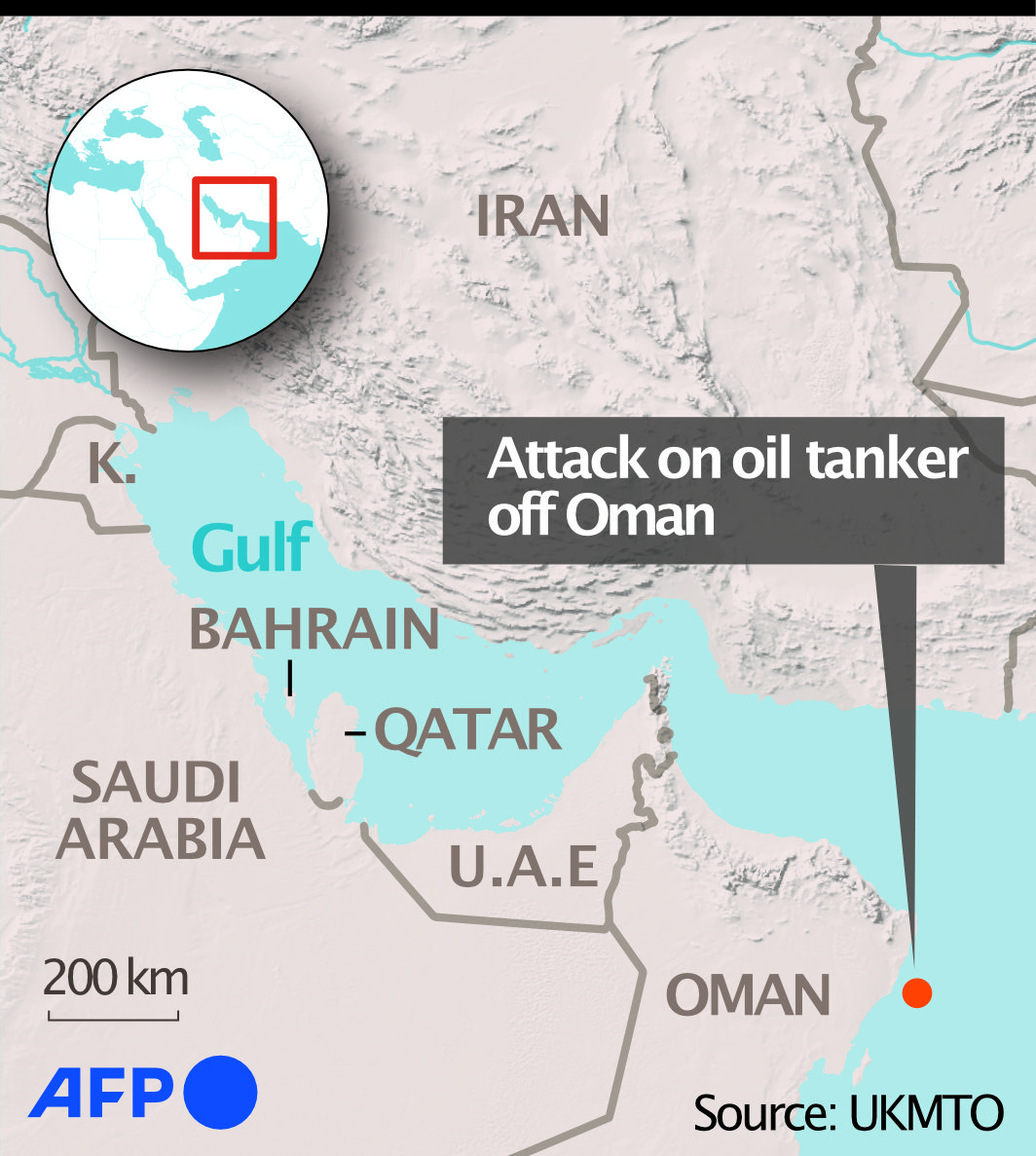
Israeli Foreign Minister Yair Lapid ordered his country’s diplomats to push for UN action against “Iranian terrorism.”
He said: “I’ve instructed the embassies in Washington, London and the UN to work with their interlocutors in government and the relevant delegations in the UN headquarters in New York.
“Iran is not just an Israeli problem, but an exporter of terrorism, destruction and instability that are hurting us all.”
Lapid said he had also spoken to British Foreign Secretary Dominic Raab, stressing “the need to respond severely to the attack on the ship in which a British citizen was killed.”
HIGHLIGHT
Several Iranian drones appear to have carried out the attack, crashing into living quarters under the ship’s command center.
The strike on the tanker comes as European powers meet with Iran in an effort to shore up a 2015 agreement to curtail the Islamic republic’s nuclear program in exchange for lifting sanctions.
The accord was strained when in 2018 former US President Donald Trump withdrew the US unilaterally and reimposed sanctions.
Negotiations in Vienna, where the US is indirectly taking part, have stalled ahead of next week’s inauguration of newly elected ultra-conservative Iranian president Ebrahim Raisi.
Retired Israeli Brig. Gen. Shlomo Brom, a senior research fellow at Israel’s Institute for National Security Studies, said the attack appeared to copy elements of an Israeli exploding drone strike on a centrifuge manufacturing site in Iran in June.
Israel “started developing drones and was among the first to develop the concept of a kamikaze,” Gen. Brom said.
“The Iranians are imitating us and adopting the same techniques.” Iran’s strike was “a certain escalation but aimed at avoiding a full-scale war,” he said. “They are not interested in a wider escalation, just as we are not interested in a wider escalation.”
In June, Iran said it had foiled a sabotage attack on an atomic energy agency building near the city of Karaj west of Tehran.
But aerial photographs obtained by private Israeli intelligence firm The Intel Lab revealed damage to the site.
(With AFP and AP)







